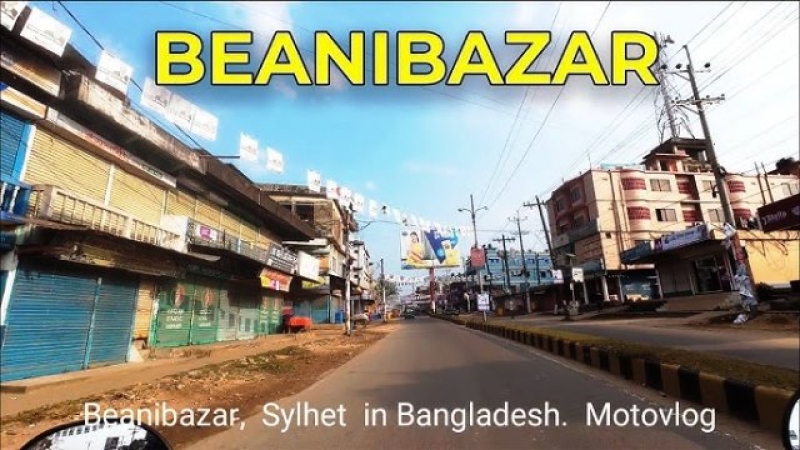- India Sees 9% Drop in Foreign Tourists as Bangladesh Visits Plunge |
- Dhaka Urges Restraint in Pakistan-Afghan War |
- Guterres Urges Action on Safe Migration Pact |
- OpenAI Raises $110B in Amazon-Led Funding |
- Puppet show enchants Children as Boi Mela comes alive on day 2 |
3,000 trees felled, yet Tk40 bn Biyanibazar highway uncertain

Beanibazar Highway project
Sylhet, April 26 – For decades, the Charkhai-Sheola-Dubag road in Biyanibazar was a tranquil route, flanked by dense green foliage and the soothing rustle of leaves overhead.
The tall trees that stood sentinel on either side of the road not only provided a cool canopy for pedestrians and vehicles alike, but also served as vital shelter for birds and small wildlife.
Today, that peaceful picture has vanished.
In a dramatic and controversial transformation, more than 3,000 trees were recently felled to make way for a long-anticipated infrastructure initiative: the Sylhet-Charikhai-Sheola Highway Development Project.
The once-green corridor now lies exposed, its barren path shimmering under the unforgiving sun.
Yet despite the sweeping clearance and the environmental cost, the future of the Tk 42.57 billion mega project remains uncertain.
On 13 February, the project’s director, Khan Md Kamrul Ahsan, suspended a tender for vehicle rentals meant to support project supervision.
The decision has only added to mounting questions about the project’s fate.
Simultaneously, the critical phase of land acquisition—essential to the project’s progression—has ground to a halt.
The initial clearing of trees began after a formal notice was issued on 1 September last year by Mir Mukut Md Abu Sayeed, Executive Arboriculturist of the Roads and Highways Department.
The notice authorised the auctioning of trees along two key routes: the Sylhet-Golapganj-Charikhai-Jakiganj road (R-250), from Kadamtoli to Charikhai, and the Sheola-Charikhai road (R-281), from Sheola Bridge to Dubag point.
The felling operation proceeded swiftly across 32 auction lots, sparking criticism and concern among local residents and environmental advocates.
One such voice is Mufti Shabbir Ahmad, former vice-chairman of the Biyanibazar Upazila Parishad, who mourned the loss of the green cover that once characterised the region.
“These trees provided shade to pedestrians for decades, and birds chirped from their branches. Cutting them all down has dealt a serious blow to the local environment,” he said.
The road expansion was envisioned as a crucial step towards improving passenger and freight movement between Sylhet and the Sheola land port, a growing trade hub along the Bangladesh-India border.
According to the Roads and Highways Department, the total cost of the project stands at Tk 42.57 billion. Of this, the World Bank has pledged Tk 28.87 billion in loans, while the remaining Tk 13.70 billion is expected to be covered by the government.
The project’s scope is both vast and ambitious. It involves the acquisition of 247.13 acres of land, 4.28 million cubic feet of earthworks, and 42.985 kilometres of pavement construction.
The design also includes 1,575 person-months of consultancy services, the building of 31 culverts, three bridges, one flyover, six overpasses, two underpasses, four footbridges, seven pedestrian crossings, and a toll plaza.
Although listed as an unauthorised new project under the 2022–2023 Annual Development Programme (ADP), its inclusion was meant to facilitate external financing and fast-track its implementation.
Yet, visible progress remains elusive.
In response to growing doubts, Project Director Khan Md Kamrul Ahsan attempted to allay fears.
“The project has not been cancelled — we are simply progressing at a slower pace,” he said, without elaborating on a concrete timeline for resumption.
However, with no developments on land acquisition and no visible on-site activity, locals are beginning to lose faith. Many now question whether the irreversible damage to the local environment—especially the loss of thousands of trees—was worth it.
For the people of Biyanibazar, what was once a beacon of promise has become a symbol of uncertainty. The road, now stripped of its soul, stands as a stark reminder of what has been lost—and what may never be realised.

